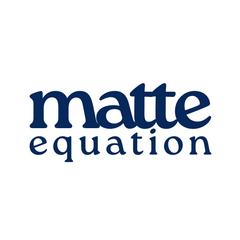Burnout doesn’t arrive in a blaze. It slips in quietly. You know, through the half-hearted text you send instead of a call, the unread messages in your group chat, the smile you force when someone else seems to be living the life you wanted. It hides in the pause between “I’m fine” and the truth.
We’ve learned to treat exhaustion like currency. To chase goals that, if we’re honest, might not even belong to us. Somewhere along the way, ambition became survival. And rest became indulgence. We refresh our inboxes like prayer. We scroll for meaning, compare for sport and fall asleep under the blue light of a thousand other people’s highlight reels, experiencing the dopamine from another person’s life.
According to the World Health Organization, burnout is now officially classified as an “occupational phenomenon”, marked by exhaustion, mental distance and reduced efficacy. But WTF does that mean? Because behind the jargon is something deeply human: the ache of wanting to be seen, and the fear that no one will notice when we fall apart.
“Almost everything will work again if you unplug it for a few minutes,” Anne Lamott once wrote. “Including you.”
I’ve found that quote to be completely striking. It’s a reminder that we do need to take our moments to refresh ourselves but what does that look like? Science has begun to catch up to what the body has known all along: burnout isn’t weakness. It’s simply biology.
Neuroscientists at Yale University have found that chronic stress rewires the brain’s architecture, shrinking the hippocampus (the region tied to memory and learning) and over-activating the amygdala, which governs fear and anxiety. “By being in chronic stress,” explains Dr. Amy Arnsten, Professor of Neuroscience and Psychology at Yale, “you’re setting up your brain to be concentrating on the negative and interpreting things in a negative way.”
In another Yale study, Dr. Elizabeth Goldfarb and her colleagues discovered that “the sensation of stress is generated by neural networks emanating from the hippocampus,” showing just how deeply our perception of stress is embodied, not imagined.
Even the brain’s prefrontal cortex, the seat of decision-making and self-control, becomes impaired under sustained stress. Dr. Rajita Sinha, Director of the Yale Stress Center, explains: “We humans are very good at facing a challenge, solving a situation. But life has become more complex, and many situations don’t have easy answers.” The result? Our stress response stays switched on, a chemical alarm that never stops ringing.
A 2022 paper published in the National Library of Medicine described burnout as “a syndrome resulting from chronic stress that has not been successfully managed, characterized by energy depletion, mental distance and reduced efficacy.” The authors found that prolonged cortisol exposure, the hormone our bodies release under stress, disrupts the balance between the limbic system (emotion) and the prefrontal cortex (reason). In simpler terms: when we’re burnt out, we literally lose access to the parts of our brain that help us feel joy, empathy and focus.
And yet, we keep going. We call it discipline. Hustle. High performance. We celebrate it, post about it and hashtag it.
Matte Equation was born out of that fatigue, not the glamorous kind, but the kind that makes you forget who you are when no one’s watching. What started as a skincare brand for recovery has become something more: a modern wellness platform exploring the intersection of neuroscience, psychology and self-care.
After working on the brand for months with iteration after iteration, I discovered something profound, this place will never live in perfection. Matte Equation is a space for experimentation. For curiosity. For the messy, unfiltered process of putting yourself back together after the world has taken its toll.
While they serve a great purpose, recovery cannot depend solely on face masks and sleep schedules. It’s rooted in emotional regulation. It’s the choice to pause before reacting. It’s the courage to admit that you’re tired of chasing meaning in places that can’t hold it.
Here, we explore the science of stress and the art of returning, through stories, tools and rituals designed to help you recover from the noise. We’ll talk to neuroscientists and psychologists who study how rest rewires the brain. We’ll test new wellness experiments, from low-dose THC resets to ice baths that teach resilience. We’ll unpack the quiet psychology behind friendship, love and the fear of being left out.
As Carl Jung once said, “The privilege of a lifetime is to become who you truly are.”
That’s the work we’re doing here. It’s the kind that doesn’t come with metrics or applause. The kind that starts when the Wi-Fi’s off and the room goes quiet.
So whether you’re mid-crash, mid-crisis or just mid-everything — welcome. You’re safe here. No judgement. No performative healing. Just science, ritual and the reminder that even when you feel completely undone, you’re already enough.
Because maybe the real wellness revolution isn’t about becoming more. It’s about remembering what was never lost.
---
Try this favourite from Matt's Rituals!
Skout Organic is plant-based snacking that raises the bar with three different flavours! Shop now and use our discount code CELESTIAL to get 20% off!


